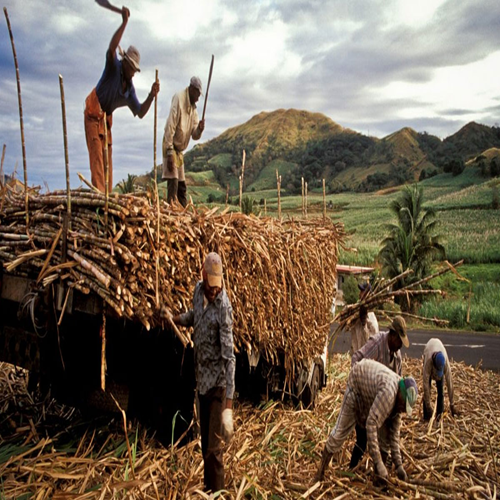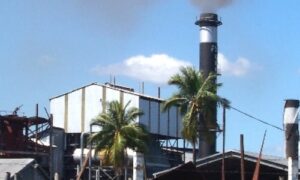State Revives Kenya Sugar Board to Revitalize Ailing Industry

The Kenyan government has revived the Kenya Sugar Board in a bid to revitalize the struggling sugar industry. This initiative aims to address long-standing challenges, including low productivity and financial instability among mills. The Board will focus on improving regulatory frameworks, enhancing sugarcane production, and ensuring fair pricing for farmers. By strengthening the industry, the government hopes to boost local sugar production, reduce reliance on imports, and support the livelihoods of sugarcane farmers across the country.
The government has resurrected Kenya Sugar Board through the enactment into law Sugar Bill 2022 in a move aimed at breathing life into the ailing sector.
- The roles of the board were taken by Sugar Directorate in the Agriculture and Food Authority through the enactment of the Crops Act, 2013.
- Since then ineffective stewardship has dodged the industry leading to non-payment of farmers by public companies, increased costs of production, poor management of companies and failure to control imports and exports among other problems.
- The new law paves way for reforms in the industry by addressing among other issues increased costs of sugar production, declining land acreage under sugar, lack of markets for sugar, failure to control imports and exports, poor management of companies in the sector, and lack of research and cane development initiatives.
The Kenya Sugar Board will be empowered to regulate, develop, and promote the sugar industry, coordinate stakeholders, participate in policy-making, and collaborate with government and research institutions. The law contains provisions on licensing and registration and jaggery millers, provides for the requirements to be fulfilled by a person who imports into the country and establishes an arbitration tribunal to handle cases between farmers, millers or other interested parties.
The Board will also oversee trade, advise growers, regulate pricing, license mills, and conduct market surveillance. It will also appoint qualified crop inspectors to enforce regulations within the sector.
Structured funding for the Board will come from National Assembly allocations and a Development Levy, capped at 4 per cent of domestic value and CIF of imported sugar. Allocations include 15 per cent for factory development, 15 per cent for research, 40 per cent for cane productivity, 15 per cent for infrastructure in sugarcane-producing regions, 10 per cent for Board administration, and 5 per cent for sugarcane farmers’ organisations.
The establishment of the Kenya Sugar Research and Training Institute will advance research, innovation, and access to sugar technologies, governed by a 9-member Board chaired by an appointee of the Cabinet Secretary.
The Ministry of Agriculture estimates that sugar industry supports the livelihoods of at least 17 per cent of the Kenyan population. It is a dominant employer and source of livelihoods for most households in 15 counties in Kenya traversing Nyanza, Rift Valley, Western and Coast regions. At full capacity, the industry can produce over 1.3 million metric tonnes which would meet the domestic demand. However, the industry only utilizes 70 per cent of the installed processing capacity.
To read more about the news about the Sugar Industry continue reading Agriinsite.com
Source Link : https://kenyanwallstreet.com/state-revives-kenya-sugar-board-to-revitalize-ailing-industry/















